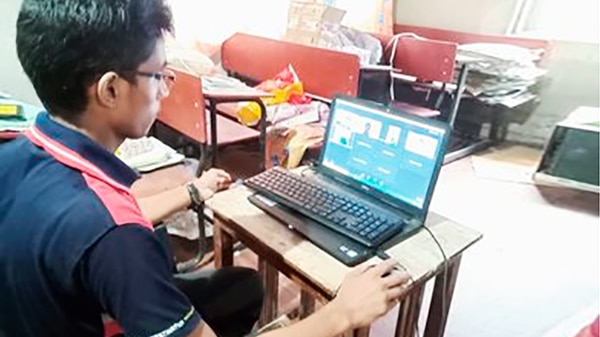New Delhi (India), 31 August 2022 – Youth, children and adolescents comprise the core of India’s 1.3 billion strong population. Over 27 percent of the country’s population is between the ages of 15-29 years. At 253 million, India is also home to the world’s largest adolescent population (10-19 years). Hence, it is essential to engage this young population with education and activity-based learning, not only on academic, professional and vocational skills, but also on life skills that concern society at large – and on which their actions matter.
In this context, the International Youth Day 2022 in India was marked with a joint consultation meeting convened by the UN Office on Drugs and Crime (UNODC) Regional Office for South Asia and the Central Board of Secondary Education (CBSE) with senior officials of 12 key institutions of the Government of India, under the theme ‘Mainstreaming education on integrity, peace, SDGs and health: Empowering Youth, Educators and Families’. This notion is also reflected in India’s National Education Policy (NEP) 2020.
India’s massive youth population faces risks, however, including falling into drug use. According to a 2019 survey conducted by the National Drug Dependence Treatment Centre (NDDTC) of the All India Institute of Medical Sciences (AIIMS), over 400,000 children and 1.8 million adults need help for inhalant abuse and dependence. Law enforcement agencies and health experts have also raised concerns over the rising drug use among young people.
One of the participants highlighted the need for stronger cooperation and coordination to counter the drug problem, noting that “young people have a right to know what risks, challenges, and vulnerabilities surround them. For this, education must enable them to act as responsible citizens with integrity, empathy and a sense of purpose. Prevention is key when it comes to addressing drugs and crime”.
As a response to the calls for support and engagement, UNODC showcased good practices in immersive activity-based learning, including its initiatives aimed at engaging students, educators and parents through education.

The UNODC Global Resource for Anti-Corruption Education and Youth Empowerment – i.e., the Global GRACE Initiative – brings to the international community knowledge and experience working with educators, academics, youth, and anti-corruption authorities to foster a culture of rejection of corruption. The Family Skills Programme, meanwhile, targets the whole family and offer skills-building for parents on monitoring and supervision of children’s activities, communication and setting age-appropriate limits. Finally, the Lockdown Learners series, initiated during the COVID-19 pandemic, offers continuous capacity building of educators and students on critical issues such as corruption, cybercrime, discrimination, misinformation, gender inequality, and the environment, among others. At the same time, the series also built capacities of educators and provided mentorship and knowledge support to students to develop initiatives/solutions to address social challenges.
The participants of the event (including officials from the Ministry of Tribal Affairs, Ministry of Panchayati Raj, the Delhi Directorate of Education, NITI Aayog policy think tank, National Council on Educational Research and Training (NCERT), National Council on Vocational Educational Training (NCVET), National Institute of Open Schooling (NIOS), Kendriya Vidyalaya Sangathan (a system of central government schools), the National Anti-Doping Agency and Sarvodaya Vidyalayas school chain, among others) welcomed the UNODC initiative, emphasizing that engaging young people, families and educators effectively was critical to efforts aimed at building back better from the pandemic.
Recommendations from the event to effectively incorporate integrity, crime prevention, Sustainable Development Goals (SDGs), and health in the school educational framework, in line with INEP 2020, will feed into UNODC’s planned activities for student engagement and educators’ capacity building in India.
This activity contributed to SDG 4 and SDG 16: https://sdg-tracker.org/.
Further information
To learn more about the work of UNODC’s Regional Office for South Asia, click here.









